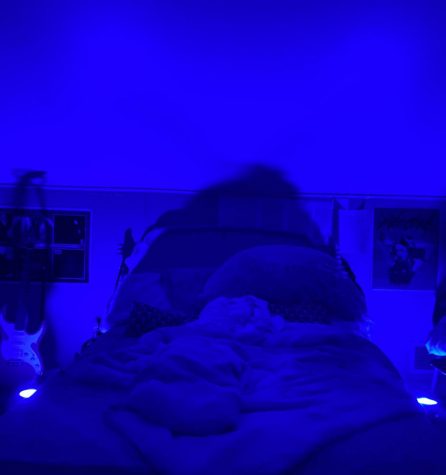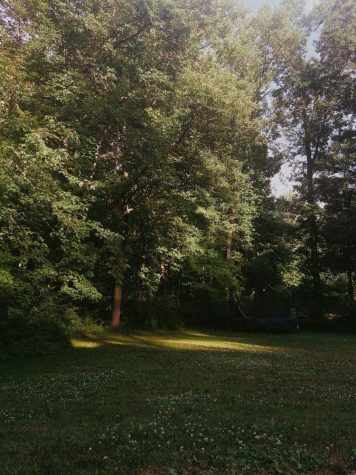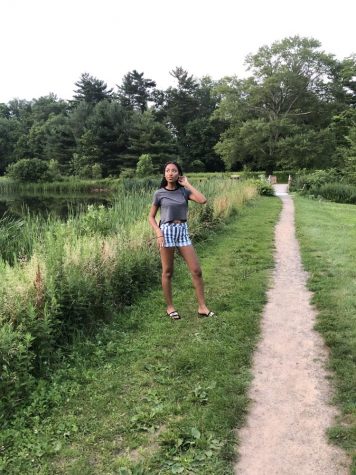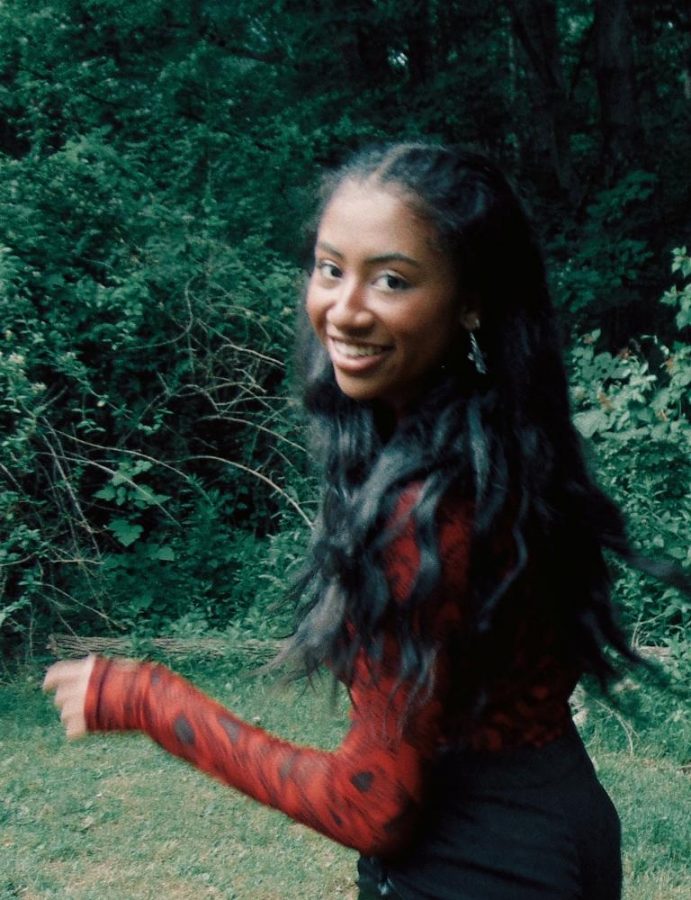While everyone in the U.S. sleeps, rising Tandon sophomore Alexis Williams codes for 10 hours straight with a darklight in her room that projects an ocean, illuminating under the moonlight type of hue. During the day, she unplugs from her virtual environments by venturing into her backyard — teeming with lush, green trees towering over one another — and sits there “doing nothing for hours.”

“When you’re doing a lot of this activism work, it’s easy to get super in your head about structures that don’t even exist in your face physically,” Williams tells me from the other side of our Zoom call.
As a 19-year old Black Latina cisgender woman in STEM, Williams’ activism sprawls across the board. She’s organized a Black Lives Matter teach-in at her former high school, uses social media apps like TikTok to candidly share her opinions regarding the inequality women — specifically Black women — face in STEM and codes for her website, pb-resources.com, which was born in response to the killings of George Floyd and Breonna Taylor by police officers.
Williams sits in a room enclosed by large rectangular windows that face what resembles the forests from the “Twilight” films. I later come to find out she resides in the Great Swamp in New Jersey.

“It’s really helpful for me to just go outside, look around me and see that there are things that exist right in front of my face,” Williams continues.
It’s this introspective charisma Williams emanates when she talks that makes me feel like I’m engrossed in a book that I can’t put down. Williams strings words together so seamlessly; I am continuously pulled into the conversation, scrambling to write notes on what she had to say.
Her website, pb-resources, is an amalgamation of what all of social media activism has looked like for the past three months — replete with links to petitions, books to read by Black authors, organizations to donate to and more. It’s a project Williams has been tirelessly devoted to that uplifts Black voices who are fighting against systemic oppression. It also serves as a testament to her desire to give more representation to Black people and motivation to provide people with access to information.
The interface of pb-resources maintains a minimalistic and organized display, with an ease in navigation. The design of the layout is incredibly presentable. What captures me the most is that in its uncomplicated nature, pb-resources’ functionality makes it as accessible as possible for people to visit, learn and share the website with others. Williams even created a “BLM Cheat Sheet” for those who just joined the movement. Williams knows, just like comedian Ziwe Fumudoh once said on her Instagram Live show, that there are no shortcuts in this movement, but that providing a dictionary with words and phrases that come up in conversations about racism will help others become better allies.
But what’s also compelling — perhaps even meta — is that in creating her website, Williams becomes another important Black voice in the community who is leaning on her coding talents to speak volumes without using words.
“What I’m trying to say with my platform is that these biases that we carry are flooded into anything we create,” Williams says.
When Williams first thought of creating pb-resources, she used the “blueprints in [her] head” of past coding projects that were navigation based to provide the foundation of the website before it even reached a code.
The first iteration of the website was quickly made after a swarm of glittery infographics pertaining to Black Lives Matter were shared all over social media. This gave Williams enough information to scour through and build a thread of resources to consolidate for the website.
As the Black Lives Matter movement gained momentum throughout June, she decided to enlist a close group of friends from her hometown to send her more resources regarding bail funds, donations links, petitions and more. This way, she could continue to code her website and update it with the most pertinent and accurate information.
“She [couldn’t] be on every social media app 24/7,” Williams’ childhood friend Eleanor Franklin says. “We just kind of sent her all the [information] we were seeing online to make it a little easier for her.”
With a mixture of timeliness, previous coding talent and experience, collaboration with her community and social media, Williams manifested the discourse of doing the work behind the scenes into something tangible and powerful for anyone to use.
“This has shown me that I have a lot of power in knowing how to create a resource like this to start a bigger conversation and include more voices in this conversation,” Williams says.
Around two month ago, Williams went viral on Twitter for a video she made on TikTok that announced the launch of her website, amassing her thousands of followers across her social media accounts. She now has 109,000 followers on TikTok.
That’s why Williams’ growing platform is important to her. While she feels like this newfound attention is a “double-edged sword,” she is grateful because now thousands of people have access to information they didn’t have before and were possibly ignoring due to the privileges they hold.
Before attending NYU, Williams was involved in Kode for Klossy, a female-driven coding program developed by fashion model Karlie Kloss. As a white woman with the proper networks and finances available to create such a successful platform (that she profits from), Kloss’ identity allows her to have unlimited access to make change. It is within this change that Williams received resources Black and non-Black POC coders usually don’t, but has used them to give back to her community and propel her activism.
At Kode for Klossy, Williams gained foundational knowledge on how to navigate the particular infrastructure necessary to code and build a website. It was in this space and other female-driven STEM organizations that Williams delved into her passion and where women like her could thrive even if their code failed.
Coding a program requires patience like that of a parent teaching a baby how to walk. There is a lot of stumbling but those are stepping stones to understanding mistakes and perfecting the craft of coding. This is especially true when building a website from scratch.
“I never want other people to feel extremely discouraged when they build their first projects because there’s a lot of learning that happens along the way,” Williams says.
While Williams receives compliments about the clear-cut and sophisticated look her website has, she is transparent about the fact that this isn’t her first time creating a platform of this nature.
“When you’re given the proper tools to be able to build so much, as you are with coding, there’s a tendency to pump out new ideas, websites, or projects — and some may stick, but not always everything!” Digital and Community Coordinator of Kode with Klossy Gina Fuchs writes in an email to WSN. “[Williams] is really the kind of person who takes a project and runs with it to fruition.”
Yet, there are moments where Williams feels like she needs a break. Avenues on social media that were once spaces Williams could escape to continue to brim with calls to action, information regarding defunding the police and painful stories about Black people who have been killed by police officers.
While she agrees with the activism showing up on her social media timelines, the subsequent uprisings after George Floyd’s and Breonna Taylot’s deaths has required Williams to constantly think about her personal experiences with oppression. That’s why she takes time away from it all to pause and feel herself grounded among the greenery fields in her backyard. But at the end of the day, Williams understands that her role in coding is bigger than her: that her role as a coder is about the collective desire to abolish systemic oppression against Black people and use her skills to partake in the movement.

The website is a product of the social media activism and a signal that there’s a lot of work that needs to be done to continue showing up for Black people. But it is also a project that shows how powerful the world can be if Black people take control of the steering wheel and sit in the driver’s seat. Williams is in full command of her activism, driving down a path where other Black coders can follow along and ride with her as well.
“This work that I’m doing is more than me,” Williams said. “I want to keep people constantly engaged because this is a problem [where] there can’t be breaks.”
Email Mandie Montes at [email protected]

























































































































































